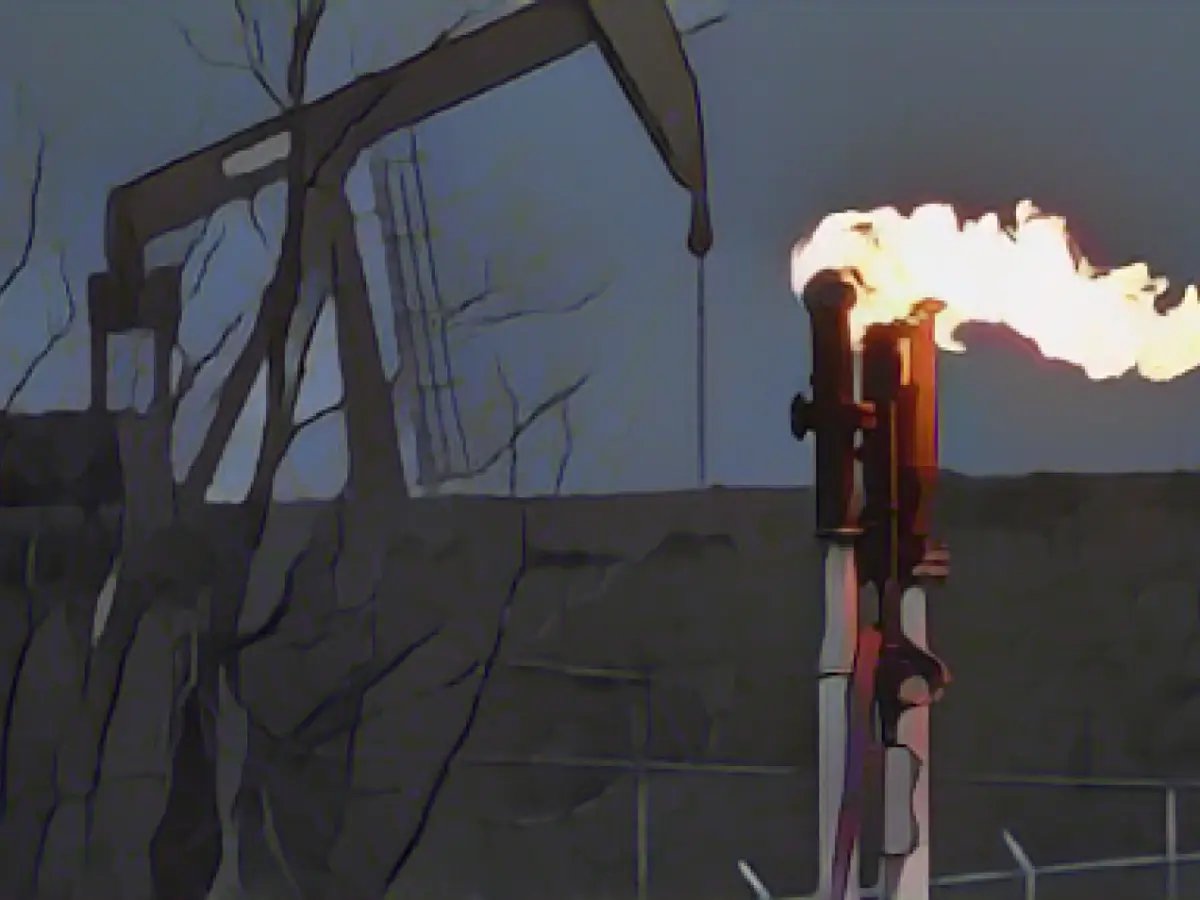Energy - EU wants to tighten price cap for Russian oil exports
One year after the introduction of the Western price cap for Russian oil exports to third countries, work is underway to further tighten the associated conditions.
Because the sanctions instrument has not worked as planned recently, the monitoring measures and documentation requirements are to be tightened in Brussels, according to information from the German Press Agency. This could make it more difficult for shipping companies to participate in circumventing Russia sanctions with impunity in future.
Ideally, the tightening of the price cap instrument should be decided by the end of the year as part of the twelfth EU sanctions package due to the Russian war of aggression against Ukraine. This also includes the proposal to restrict trade in diamonds from Russia.
The price cap came into force a year ago today together with an extensive ban on the import of Russian oil into the EU. It is actually intended to force Russia to sell oil to customers in other countries for a maximum of 60 US dollars per barrel (159 liters) in future.
Hope: easing on the energy markets
In order to enforce the price cap for exports to non-EU countries, it was decided that important maritime transport services for Russian oil exports may only be provided with impunity if the price of the exported oil does not exceed the price cap. Western shipping companies can therefore continue to transport Russian oil to countries such as India, China or Egypt with their ships. The regulation also applies to other important services such as insurance, technical assistance and financing and brokerage services.
The hope is that the price cap will ease the situation on the energy markets in the long term and also relieve the burden on third countries. It is also intended to ensure that Russia can no longer profit from oil price increases and thus fill its war chest.
However, according to researchers at the Kyiv School of Economics, the latest data now indicates that more than 99 percent of Russian crude oil exported by sea in October was probably sold at a price of more than 60 US dollars (55 euros) per barrel. This is probably possible because fake price certificates were provided, they write. In addition, Russia could increasingly rely on a "shadow fleet", i.e. ships that are not owned by Western shipping companies or insured by Western insurers.
Read also:
- Despite the price cap, Russia continues to export oil to countries like India and China, bypassing the EU sanctions, raising concerns about the effectiveness of the measure.
- The tightening of the conditions for the price cap could potentially deter shipping companies from participating in the circumvention of Russia sanctions.
- The EU is considering further restrictions on foreign trade, such as the proposal to limit trade in diamonds from Russia, as part of the upcoming sanctions package.
- The EU and USA are both advocating for a tightened approach towards Russia, aiming to limit the financial gains from oil exports and weaken its war effort in Ukraine.
- The US dollar remains a significant currency in international oil trade, and any changes in its value can have profound consequences for Russia's oil export revenue.
- The German government and other EU members are pushing for a strengthened response to Russian aggression in Ukraine, aiming to increase the pressure on Moscow through economic sanctions.
- The conflict between Russia and Ukraine has led to a considerable disruption in the energy sector, with tensions mounting between Russia and its key energy partners in Europe.
- As a third country, Germany is also affected by the consequences of the war in Ukraine, and has played a significant role in implementing and enforcing EU sanctions on Russia.
- The tightening of the price cap on Russian oil exports could potentially lead to a decrease in oil supplies to the global market, impacting oil prices and affecting foreign trade around the world.
- The EU's sanctions on Russian oil exports to third countries have had mixed results, with Russia apparently circumventing the price cap through various means such as providing fake price certificates and using "shadow fleets."
- The final decision on the tightening of the price cap is expected to be made as part of the twelfth EU sanctions package, aimed at increasing the economic pressure on Russia in response to its ongoing war of aggression against Ukraine.
Source: www.stern.de








